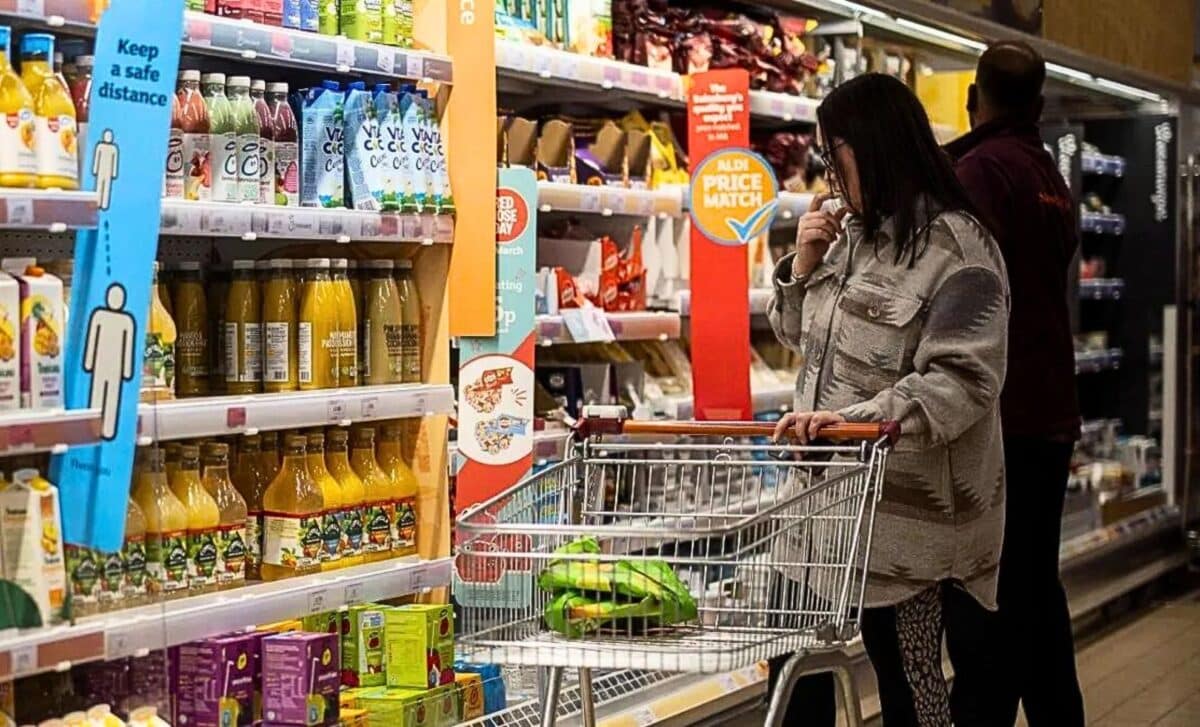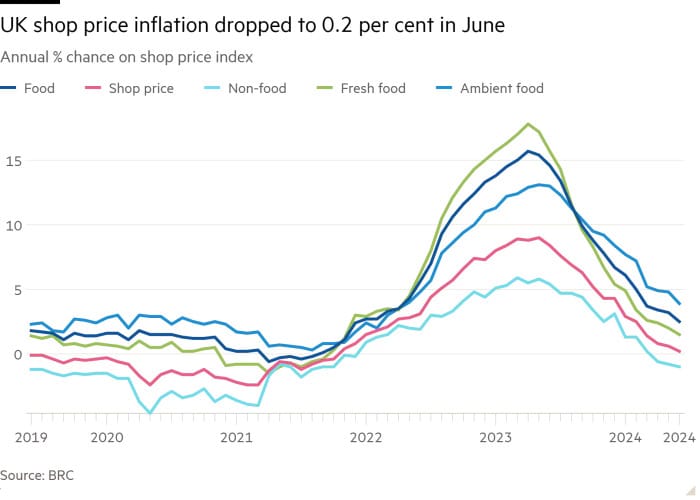UK shop prices fell slightly between May and June. Yes, they fell, but not by much compared to last year. This trend seems to indicate that the next government may benefit significantly from a lower cost-of-living crisis.
UK Shop Prices Fall, Easing Cost of Living Crisis
On Tuesday, the British Retail Consortium (BRC) announced some good news: prices in shops and supermarkets fell by 0.2% between May and June. Both food and non-food products fell slightly.
Annual inflation, which measures the change in prices compared with the same month in 2023, fell to 0.2% last month. This is a considerable fall on the 0.6% recorded in May and the lowest inflation rate seen since October 2021.
Helen Dickinson, Chief Executive of the BRC, said: “The incoming government will benefit from retailers’ efforts to reduce costs and prices, thereby easing the cost of living for millions of households.”
She also noted that food inflation is now at its lowest level since 2021, thanks to cheaper staples such as butter and coffee. Additionally, non-food prices dropped year-on-year as retailers used discounts to boost sales.
“This is particularly evident in the deals available for TVs, aimed at capitalising on the excitement around the Euro championships.” added Helen Dickinson.
Impact of the Cost of Living Crisis
Over the past three years, households have grappled with the relentless cost of living crisis. Shop price inflation soared, hitting an unprecedented 9pc peak in May 2023, a spike triggered by Russia’s full-scale invasion of Ukraine.
The rising cost of living has become a serious obstacle for Prime Minister Rishi Sunak as he tries to win over voters in this week’s election. Labour currently enjoys a substantial lead in opinion polls, outpacing the governing Conservatives by roughly 20 points.
Official consumer price inflation, which includes services, energy and travel – unlike the BRC index – fell to 2% last month. This is the first time it has been in line with the Bank of England’s target since July 2021.
The latest data from the BRC shows a continued easing of underlying price pressures in June. Combined with rapid wage growth, this is boosting household incomes and, consequently, economic growth.
The BRC reported that non-food prices experienced deflation, falling by 1pc annually in June, a sharper drop than the 0.8pc contraction recorded in May.
Decline in Food Inflation
In June, food inflation continued its decline to 2.5pc, marking a notable decrease from May’s 3.2pc and a significant drop from its peak at 15.7pc in April of the previous year.
Annual price increases for ambient food, comprising items suitable for storage at room temperature, remained elevated but showed a sharp decrease to 3.9pc from the previous month’s 4.8pc.
Mike Watkins, head of retailer and business insight at NielsenIQ, commented on the data compilation, noting, “The ongoing deceleration in retail price inflation will aid consumers in effectively managing their household budgets for essential goods and services.”










